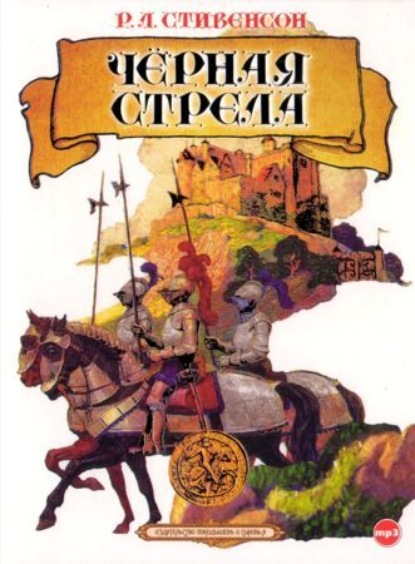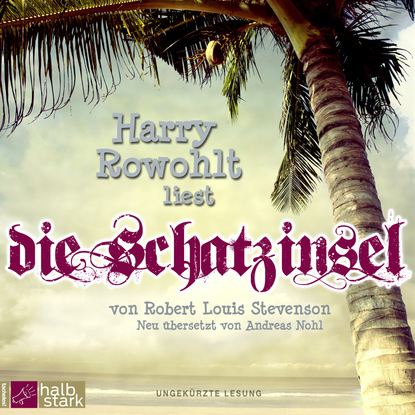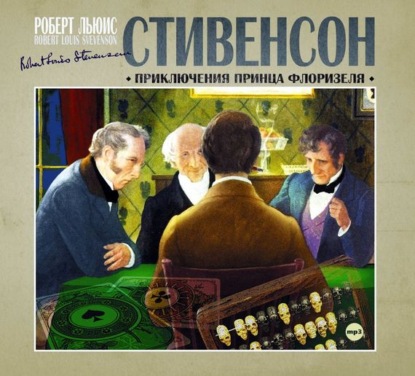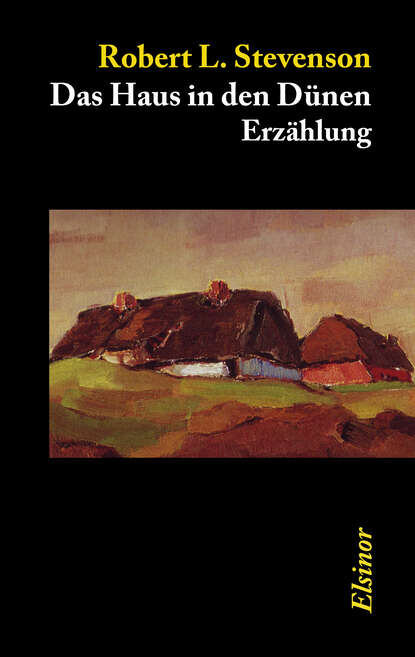 Полная версия
Полная версияПолная версия:
Роберт Льюис Стивенсон The Pocket R.L.S.: Being Favourite Passages from the Works of Stevenson
- + Увеличить шрифт
- - Уменьшить шрифт

Robert Louis Stevenson
The Pocket R.L.S.: Being Favourite Passages from the Works of Stevenson
SELECTED PASSAGES
When you have read, you carry away with you a memory of the man himself; it is as though you had touched a loyal hand, looked into brave eyes, and made a noble friend; there is another bond on you thenceforward, binding you to life and to the love of virtue.
It is to some more specific memory that youth looks forward in its vigils. Old kings are sometimes disinterred in all the emphasis of life, the hands untainted by decay, the beard that had so often wagged in camp or senate still spread upon the royal bosom; and in busts and pictures, some similitude of the great and beautiful of former days is handed down. In this way, public curiosity may be gratified, but hardly any private aspiration after fame. It is not likely that posterity will fall in love with us, but not impossible that it may respect or sympathise; and so a man would rather leave behind him the portrait of his spirit than a portrait of his face, FIGURA ANIMI MAGIS QUAM CORPORIS.
The pleasure that we take in beautiful nature is essentially capricious. It comes sometimes when we least look for it; and sometimes, when we expect it most certainly, it leaves us to gape joylessly for days together, in the very homeland of the beautiful. We may have passed a place a thousand times and one; and on the thousand and second it will be transfigured, and stand forth in a certain splendour of reality from the dull circle of surroundings; so that we see it ‘with a child’s first pleasure,’ as Wordsworth saw the daffodils by the lake-side.
But every one sees the world in his own way. To some the glad moment may have arrived on other provocations; and their recollection may be most vivid of the stately gait of women carrying burthens on their heads; of tropical effect, with caves and naked rock and sunlight; of the relief of cypresses; of the troubled, busy-looking groups of sea-pines, that seem always as if they were being wielded and swept together by a whirlwind; of the air coming, laden with virginal perfumes, over the myrtles and the scented underwoods; of the empurpled hills standing up, solemn and sharp, out of the green-gold air of the east at evening. There go many elements, without doubt, to the making of one such moment of intense perception; and it is on the happy agreement of these many elements, on the harmonious vibration of many nerves, that the whole delight of the moment must depend.
You should have heard him speak of what he loved; of the tent pitched beside the talking water; of the stars overhead at night; of the blest return of morning, the peep of day over the moors, the awaking birds among the birches; how he abhorred the long winter shut in cities; and with what delight, at the return of the spring, he once more pitched his camp in the living out-of-doors.
It was one of the best things I got from my education as an engineer: of which, however, as a way of life, I wish to speak with sympathy. It takes a man into the open air; it keeps him hanging about harbour-sides, which is the richest form of idling; it carries him to wild islands; it gives him a taste of the genial dangers of the sea; it supplies him with dexterities to exercise; it makes demands upon his ingenuity; it will go far to cure him of any taste (if ever he had one) for the miserable life of cities. And when it has done so, it carries him back and shuts him in an office! From the roaring skerry and the wet thwart of the tossing boat, he passes to the stool and desk; and with a memory full of ships, and seas, and perilous headlands, and the shining Pharos, he must apply his long-sighted eyes to the pretty niceties of drawing, or measure his inaccurate mind with several pages of consecutive figures. He is a wise youth, to be sure, who can balance one part of genuine life against two parts of drudgery between four walls, and for the sake of the one, manfully accept the other.
No one knows the stars who has not slept, as the French happily put it, A LA BELLE ETOILE. He may know all their names and distances and magnitudes, and yet be ignorant of what alone concerns mankind, – their serene and gladsome influence on the mind. The greater part of poetry is about the stars; and very justly, for they are themselves the most classical of poets.
He surprised himself by a sudden impulse to write poetry – he did so sometimes, loose, galloping octosyllabics in the vein of Scott – and when he had taken his place on a boulder, near some fairy falls, and shaded by a whip of a tree that was already radiant with new leaves, it still more surprised him that he should find nothing to write. His heart perhaps beat in time to some vast indwelling rhythm of the universe.
No man can find out the world, says Solomon, from beginning to end, because the world is in his heart; and so it is impossible for any of us to understand, from beginning to end, that agreement of harmonious circumstances that creates in us the highest pleasure of admiration, precisely because some of these circumstances are hidden from us for ever in the constitution of our own bodies. After we have reckoned up all that we can see or hear or feel, there still remains to be taken into account some sensibility more delicate than usual in the nerves affected, or some exquisite refinement in the architecture of the brain, which is indeed to the sense of the beautiful as the eye or the ear to the sense of hearing or sight. We admire splendid views and great pictures; and yet what is truly admirable is rather the mind within us, that gathers together these scattered details for its delight, and snakes out of certain colours, certain distributions of graduated light and darkness, that intelligible whole which alone we call a picture or a view. Hazlitt, relating in one of his essays how he went on foot from one great man’s house to another’s in search of works of art, begins suddenly to triumph over these noble and wealthy owners, because he was more capable of enjoying their costly possessions than they were; because they had paid the money and he had received the pleasure. And the occasion is a fair one for self-complacency. While the one man was working to be able to buy the picture, the other was working to be able to enjoy the picture. An inherited aptitude will have been diligently improved in either case; only the one man has made for himself a fortune, and the other has made for himself a living spirit. It is a fair occasion for self-complacency, I repeat, when the event shows a man to have chosen the better part, and laid out his life more wisely, in the long-run, than those who have credit for most wisdom. And yet even this is not a good unmixed; and like all other possessions, although in a less degree, the possession of a brain that has been thus improved and cultivated, and made into the prime organ of a man’s enjoyment, brings with it certain inevitable cares and disappointments. The happiness of such an one comes to depend greatly upon those fine shades of sensation that heighten and harmonise the coarser elements of beauty. And thus a degree of nervous prostration, that to other men would be hardly disagreeable, is enough to overthrow for him the whole fabric of his life, to take, except at rare moments, the edge off his pleasures, and to meet him wherever he goes with failure, and the sense of want, and disenchantment of the world and life.
THE VAGABOND (TO AN AIR OF SCHUBERT) Give to me the life I love, Let the lave go by me, Give the jolly heaven above And the byway nigh me. Bed in the bush with stars to see, Bread I dip in the river — There’s the life for a man like me, There’s the life for ever. Let the blow fall soon or late, Let what will be o’er me; Give the face of earth around, And the road before me. Wealth I ask not, hope nor love, Nor a friend to know me; All I ask, the heaven above And the road below me.Every one who has been upon a walking or a boating tour, living in the open air, with the body in constant exercise and the mind in fallow, knows true ease and quiet. The irritating action of the brain is set at rest; we think in a plain, unfeverish temper; little things seem big enough, and great things no longer portentous; and the world is smilingly accepted as it is.
For my part, I travel not to go anywhere, but to go. I travel for travel’s sake. The great affair is to move; to feel the needs and hitches of our life more nearly; to come down off this feather-bed of civilisation, and find the globe granite under foot and strewn with cutting flints. Alas, as we get up in life, and are more preoccupied with our affairs, even a holiday is a thing that must be worked for. To hold a pack upon a pack-saddle against a gale out of the freezing north is no high industry, but it is one that serves to occupy and compose the mind. And when the present is so exacting who can annoy himself about the future?
A SONG OF THE ROAD The gauger walked with willing foot, And aye the gauger played the flute: And what should Master Gauger play But OVER THE HILLS AND FAR AWAY? Whene’er I buckle on my pack And foot it gaily in the track, O pleasant gauger, long since dead, I hear you fluting on ahead. You go with me the selfsame way — The selfsame air for me you play; For I do think and so do you It is the tune to travel to. For who would gravely set his face To go to this or t’other place? There’s nothing under Heav’n so blue That’s fairly worth the travelling to. On every hand the roads begin, And people walk with zeal therein; But wheresoe’er the highways tend, Be sure there’s nothing at the end. Then follow you, wherever hie The travelling mountains of the sky. Or let the streams in civil mode Direct your choice upon a road; For one and all, or high or low, Will lead you where you wish to go; And one and all go night and day OVER THE HILLS AND FAR AWAY!A walking tour should be gone upon alone, because freedom is of the essence; because you should be able to stop and go on, and follow this way or that, as the freak takes you; and because you must have your own pace, and neither trot alongside a champion walker, nor mince in time with a girl. And then you must be open to all impressions and let your thoughts take colour from what you see. You should be as a pipe for any wind to play upon.
It must not be imagined that a walking tour, as some would have us fancy, is merely a better or worse way of seeing the country. There are many ways of seeing landscape quite as good; and none more vivid, in spite of canting dilettantes, than from a railway train. But landscape on a walking tour is quite accessory. He who is indeed of the brotherhood does not voyage in quest of the picturesque, but of certain jolly humours – of the hope and spirit with which the march begins at morning, and the peace and spiritual repletion of the evening’s rest. He cannot tell whether he puts his knapsack on, or takes it off, with more delight. The excitement of the departure puts him in key for that of the arrival. Whatever he does is not only a reward in itself, but will be further rewarded in the sequel; and so pleasure leads on to pleasure in an endless chain.
Nor does the scenery any more affect the thoughts than the thoughts affect the scenery. We see places through our humours as through differently-coloured glasses. We are ourselves a term in the equation, a note of the chord, and make discord or harmony almost at will. There is no fear for the result, if we can but surrender ourselves sufficiently to the country that surrounds and follows us, so that we are ever thinking suitable thoughts or telling ourselves some suitable sort of story as we go. We become thus, in some sense, a centre of beauty; we are provocative of beauty, much as a gentle and sincere character is provocative of sincerity and gentleness in others.
There is nobody under thirty so dead but his heart will stir a little at sight of a gypsies’ camp. ‘We are not cotton-spinners all;’ or, at least, not all through. There is some life in humanity yet; and youth will now and again find a brave word to say in dispraise of riches, and throw up a situation to go strolling with a knapsack.
I began my little pilgrimage in the most enviable of all humours: that in which a person, with a sufficiency of money and a knapsack, turns his back on a town and walks forward into a country of which he knows only by the vague report of others. Such an one has not surrendered his will and contracted for the next hundred miles, like a man on a railway. He may change his mind at every finger-post, and, where ways meet, follow vague preferences freely and go the low road or the high, choose the shadow or the sunshine, suffer himself to be tempted by the lane that turns immediately into the woods, or the broad road that lies open before him into the distance, and shows him the far-off spires of some city, or a range of mountain-tops, or a run of sea, perhaps, along a low horizon. In short, he may gratify his every whim and fancy, without a pang of reposing conscience, or the least jostle of his self-respect. It is true, however, that most men do not possess the faculty of free action, the priceless gift of being able to live for the moment only; and as they begin to go forward on their journey, they will find that they have made for themselves new fetters. Slight projects they may have entertained for a moment, half in jest, become iron laws to them, they know not why. They will be led by the nose by these vague reports of which I spoke above; and the mere fact that their informant mentioned one village and not another will compel their footsteps with inexplicable power. And yet a little while, yet a few days of this fictitious liberty, and they will begin to hear imperious voices calling on them to return; and some passion, some duty, some worthy or unworthy expectation, will set its hand upon their shoulder and lead them back into the old paths. Once and again we have all made the experiment. We know the end of it right well. And yet if we make it for the hundredth time to-morrow, it will have the same charm as ever; our hearts will beat and our eyes will be bright, as we leave the town behind us, and we shall feel once again (as we have felt so often before) that we are cutting ourselves loose for ever from our whole past life, with all its sins and follies and circumscriptions, and go forward as a new creature into a new world.
Herein, I think, lies the chief attraction of railway travel. The speed is so easy, and the train disturbs so little the scenes through which it takes us, that our heart becomes full of the placidity and stillness of the country; and while the body is borne forward in the flying chain of carriages, the thoughts alight, as the humour moves them, at unfrequented stations; they make haste up the poplar alley that leads towards town; they are left behind with the signalman as, shading his eyes with his hand, he watches the long train sweep away into the golden distance.
Now, there is no time when business habits are more mitigated than on a walking tour. And so during these halts, as I say, you will feel almost free. … If the evening be fine and warm, there is nothing better in life than to lounge before the inn door in the sunset, or lean over the parapet of the bridge, to watch the weeds and the quick fishes. It is then, if ever, that you taste joviality to the full significance of that audacious word. Your muscles are so agreeably slack, you feel so clean and so strong and so idle, that whether you move or sit still, whatever you do is done with pride and a kingly sort of pleasure. You fall in talk with any one, wise or foolish, drunk or sober. And it seems as if a hot walk purged you, more than of anything else, of all narrowness and pride, and left curiosity to play its part freely, as in a child or a man of science. You lay aside all your own hobbies to watch provincial humours develop themselves before you, now as a laughable farce, and now grave and beautiful like an old tale.
It is almost as if the millennium were arrived, when we shall throw our clocks and watches over the housetops, and remember time and seasons no more. Not to keep hours for a lifetime is, I was going to say, to live for ever. You have no idea, unless you have tried it, how endlessly long is a summer’s day that you measure out only by hunger, and bring to an end only when you are drowsy.
I know a village where there are hardly any clocks, where no one knows more of the days of the week than by a sort of instinct for the fete on Sundays, and where only one person can tell you the day of the month, and she is generally wrong; and if people were aware how slow Time journeyed in that village, and what armfuls of spare hours he gives, over and above the bargain, to its wise inhabitants, I believe there would be a stampede out of London, Liverpool, Paris, and a variety of large towns, where the clocks lose their heads, and shake the hours out each one faster than the other, as though they were all in a wager. And all these foolish pilgrims would each bring his own misery along with him, in a watch-pocket!
The bed was made, the room was fit, By punctual eve the stars were lit; The air was still, the water ran; No need there was for maid or man, When we put us, my ass and I, At God’s green caravanserai.To wash in one of God’s rivers in the open air seems to me a sort of cheerful solemnity or semi-pagan act of worship. To dabble among dishes in a bedroom may perhaps make clean the body; but the imagination takes no share in such a cleansing.
I own I like definite form in what my eyes are to rest upon; and if landscapes were sold, like the sheets of characters of my boyhood, one penny plain and twopence coloured, I should go the length of twopence every day of my life.
There should be some myth (but if there is, I know it not) founded on the shivering of the reeds. There are not many things in nature more striking to man’s eye. It is such an eloquent pantomime of terror; and to see such a number of terrified creatures taking sanctuary in every nook along the shore is enough to infect a silly human with alarm. Perhaps they are only a-cold, and no wonder, standing waist deep in the stream. Or, perhaps, they have never got accustomed to the speed and fury of the river’s flux, or the miracle of its continuous body. Pan once played upon their forefathers; and so, by the hands of his river, he still plays upon these later generations down all the valley of the Oise; and plays the same air, both sweet and shrill, to tell us of the beauty and the terror of the world.
The reeds might nod their heads in warning, and with tremulous gestures tell how the river was as cruel as it was strong and cold, and how death lurked in the eddy underneath the willows. But the reeds had to stand where they were; and those who stand still are always timid advisers.
The wholeday was showery, with occasional drenching plumps. We were soaked to the skin, then partially dried in the sun, then soaked once more. But there were some calm intervals, and one notably, when we were skirting the forest of Mormal, a sinister name to the ear, but a place most gratifying to sight and smell. It looked solemn along the riverside, drooping its boughs into the water, and piling them up aloft into a wall of leaves. What is a forest but a city of nature’s own, full of hardy and innocuous living things, where there is nothing dead and nothing made with the hands, but the citizens themselves are the houses and public monuments? There is nothing so much alive and yet so quiet as a woodland; and a pair of people, swinging past in canoes, feel very small and bustling by comparison.
I wish our way had always lain among woods. Trees are the most civil society. An old oak that has been growing where he stands since before the Reformation, taller than many spires, more stately than the greater part of mountains, and yet a living thing, liable to sicknesses and death, like you and me: is not that in itself a speaking lesson in history? But acres on acres full of such patriarchs contiguously rooted, their green tops billowing in the wind, their stalwart younglings pushing up about their knees; a whole forest, healthy and beautiful, giving colour to the light, giving perfume to the air; what is this but the most imposing piece in nature’s repertory?
But indeed it is not so much for its beauty that the forest makes a claim upon men’s hearts, as for that subtle something, that quality of the air, that emanation from the old trees, that so wonderfully changes and renews a weary spirit.
With all this in mind, I have often been tempted to put forth the paradox that any place is good enough to live a life in, while it is only in a few, and those highly favoured, that we can pass a few hours agreeably. For, if we only stay long enough, we become at home in the neighbourhood. Reminiscences spring up, like flowers, about uninteresting corners. We forget to some degree the superior loveliness of other places, and fall into a tolerant and sympathetic spirit which is its own reward and justification.
For when we are put down in some unsightly neighbourhood, and especially if we have come to be more or less dependent on what we see, we must set ourselves to hunt out beautiful things with all the ardour and patience of a botanist after a rare plant. Day by day we perfect ourselves in the art of seeing nature more favourably. We learn to live with her, as people learn to live with fretful or violent spouses: we dwell lovingly on what is good, and shut our eyes against all that is bleak or inharmonious. We learn, also, to come to each place in the right spirit. The traveller, as Brantome quaintly tells us, ‘fait des discours en soi pour se soutenir en chemin.’
There is no end, indeed, to making books or experiments, or to travel, or to gathering wealth. Problem gives rise to problem. We may study for ever, and we are never as learned as we would. We have never made a statue worthy of our dreams. And when we have discovered a continent, or crossed a chain of mountains, it is only to find another ocean or another plain upon the farther side. In the infinite universe there is room for our swiftest diligence and to spare. It is not like the works of Carlyle, which can be read to an end. Even in a corner of it, in a private park, or in the neighbourhood of a single hamlet, the weather and the seasons keep so deftly changing that although we walk there for a lifetime there will be always something to startle and delight us.
It is in virtue of his own desires and curiosities that any man continues to exist with even patience, that he is charmed by the look of things and people, and that he wakens every morning with a renewed appetite for work and pleasure. Desire and curiosity are the two eyes through which he sees the world in the most enchanted colours: it is they that make women beautiful or fossils interesting: and the man may squander his estate and come to beggary, but if he keeps these two amulets he is still rich in the possibilities of pleasure.
To look on the happy side of nature is common, in their hours, to all created things. Some are vocal under a good influence, are pleasing whenever they are pleased, and hand on their happiness to others, as a child who, looking upon lovely things, looks lovely. Some leap to the strains with unapt foot, and make a halting figure in the universal dance. And some, like sour spectators at the play, receive the music into their hearts with an unmoved countenance, and walk like strangers through the general rejoicing. But let him feign never so carefully, there is not a man but has his pulses shaken when Pan trolls out a stave of ecstasy and sets the world a-singing.
Science writes of the world as if with the cold finger of a starfish; it is all true; but what is it when compared to the reality of which it discourses? where hearts beat high in April, and death strikes, and hills totter in the earthquake, and there is a glamour over all the objects of sight, and a thrill in all noises for the ear, and Romance herself has made her dwelling among men? So we come back to the old myth, and hear the goat-footed piper making the music which is itself the charm and terror of things; and when a glen invites our visiting footsteps, fancy that Pan leads us thither with a gracious tremolo; or when our hearts quail at the thunder of the cataract, tell ourselves that he has stamped his hoof in the nigh thicket.





